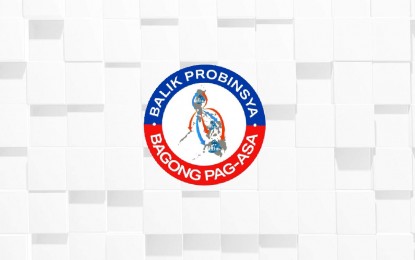
LEGAZPI CITY – A total of 392 families who benefited from the Balik-Probinsya, Bagong Pag-Asa (BP2) program in Bicol received a total of PHP35.8 million cash assistance in 2023, a regional official of the Department of Social Welfare and Development (DSWD) reported Thursday.
"The amount of family support packages depends on the number of families and school children. Some of the assistance they received were transitory family support packages, livelihood settlement grants, and transitory shelter assistance," Ranelle Anne Sertan, BP2 information officer, said in an interview.
She said the transitory family support package is financial assistance ranging from PHP10,000 to PHP50,000 to cover the food and non-food items needed by the family during the transition phase.
The transitory shelter assistance serves as a rental subsidy for beneficiaries who have no home in the community or have a place that needs renovation to be livable.
"Aside from the transitory family support package, the families also received a livelihood settlement grant that is a start-up financial assistance not exceeding PHP50,000," she said.
Sertan said the families were selected by the National Housing Authority (NHA) and the Department of Social Welfare and Development (DSWD) Central Office, and endorsed by different local government units (LGUs) in Bicol.
"The LGUs and our partners have been instrumental in assessing and monitoring our beneficiaries, which has significantly contributed to the transformative impact of our program," she said.
Sertan added the beneficiaries are being monitored and equipped with the necessary skills to manage their livelihood through training sessions.
The 392 families are from Sorsogon (33); Camarines Sur (166); Camarines Norte (nine); Catanduanes (one); Albay (170); and Masbate (13).
The BP2 program is one of the support measures being implemented by DSWD's Kapit-Bisig Laban sa Kahirapan - Comprehensive and Integrated Delivery of Social Services (KALAHI-CIDSS) program to decongest urban poor communities.
It also aims to provide opportunities to families from urban areas who are affected by the pandemic, displaced workers, or those who are susceptible to health and safety risks and other environmental hazards. (PNA)
